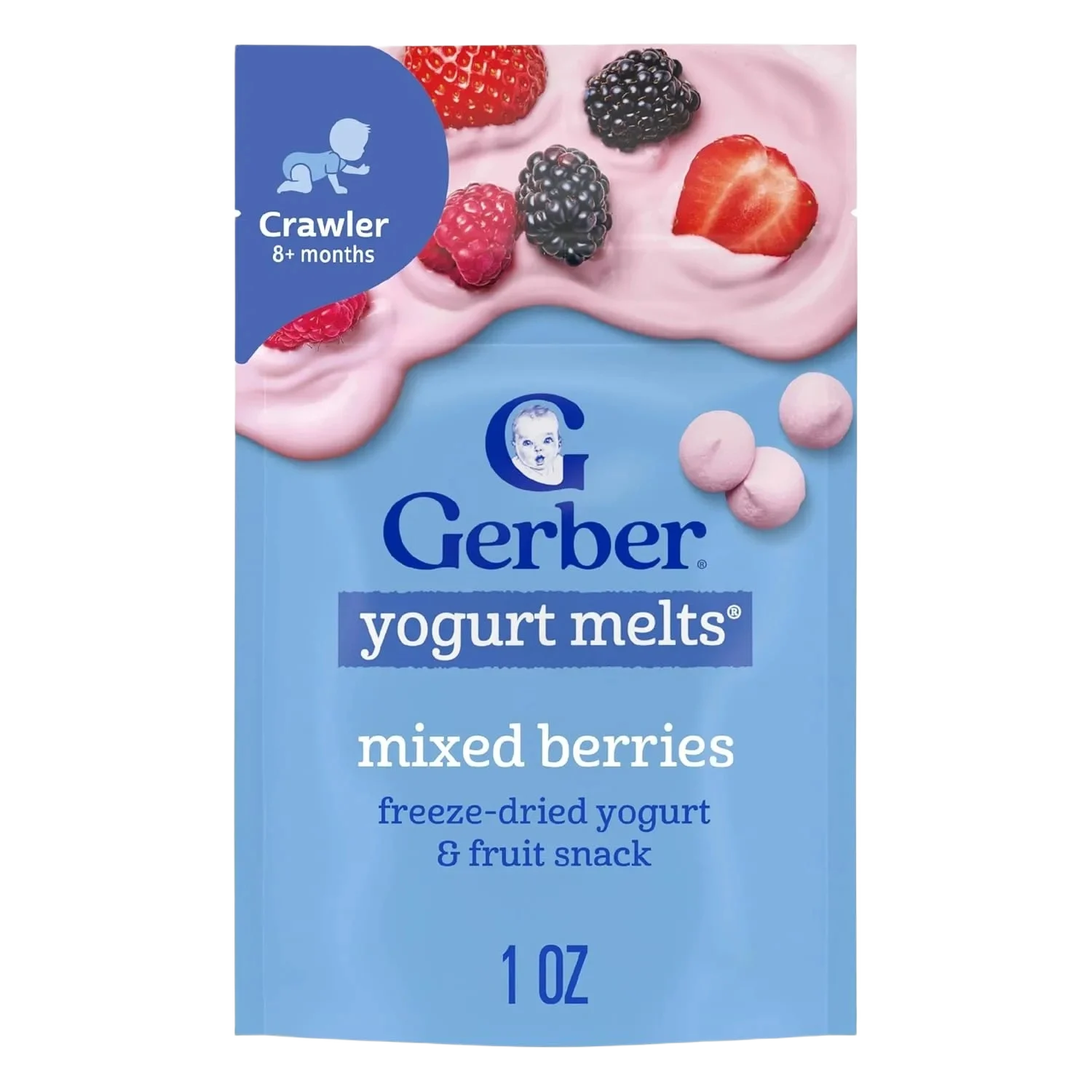Gerber yogurt melts® mixed berries
snacks • For 6-12 month old babies • Consumable 🍝
Product Images
Product Photo

Tap to enlarge
Ingredient List

Tap to enlarge
Can older babies eat Gerber yogurt melts® mixed berries?
Check for Different Age (6 available)
Ingredients Analysis (15 found)










Common Questions About Gerber yogurt melts® mixed berries
Safe for older babies? Gerber yogurt melts® mixed berries
Gerber yogurt melts® mixed berries is not recommended for 6-12 month old babies due to potentially harmful ingredients.
What ingredients should I watch out for?
We analyzed 15 ingredients in Gerber yogurt melts® mixed berries. 1 concerning, 3 caution. Check the detailed analysis above for specific concerns.
Is this appropriate for older babies to eating snacks?
The appropriate age depends on the specific ingredients. This analysis is for 6-12 month old babies. Use the age selector above to check other ages.
⚠️ Important Disclaimers
Product Recognition: Product names are identified programatically and may be incorrect. Always verify product identity yourself.
Safety Analysis: Evaluations are for research only - consult pediatricians for medical decisions. Do not rely solely on this analysis.
No Guarantees: Results may be incomplete or inaccurate. Do not rely solely on this analysis.